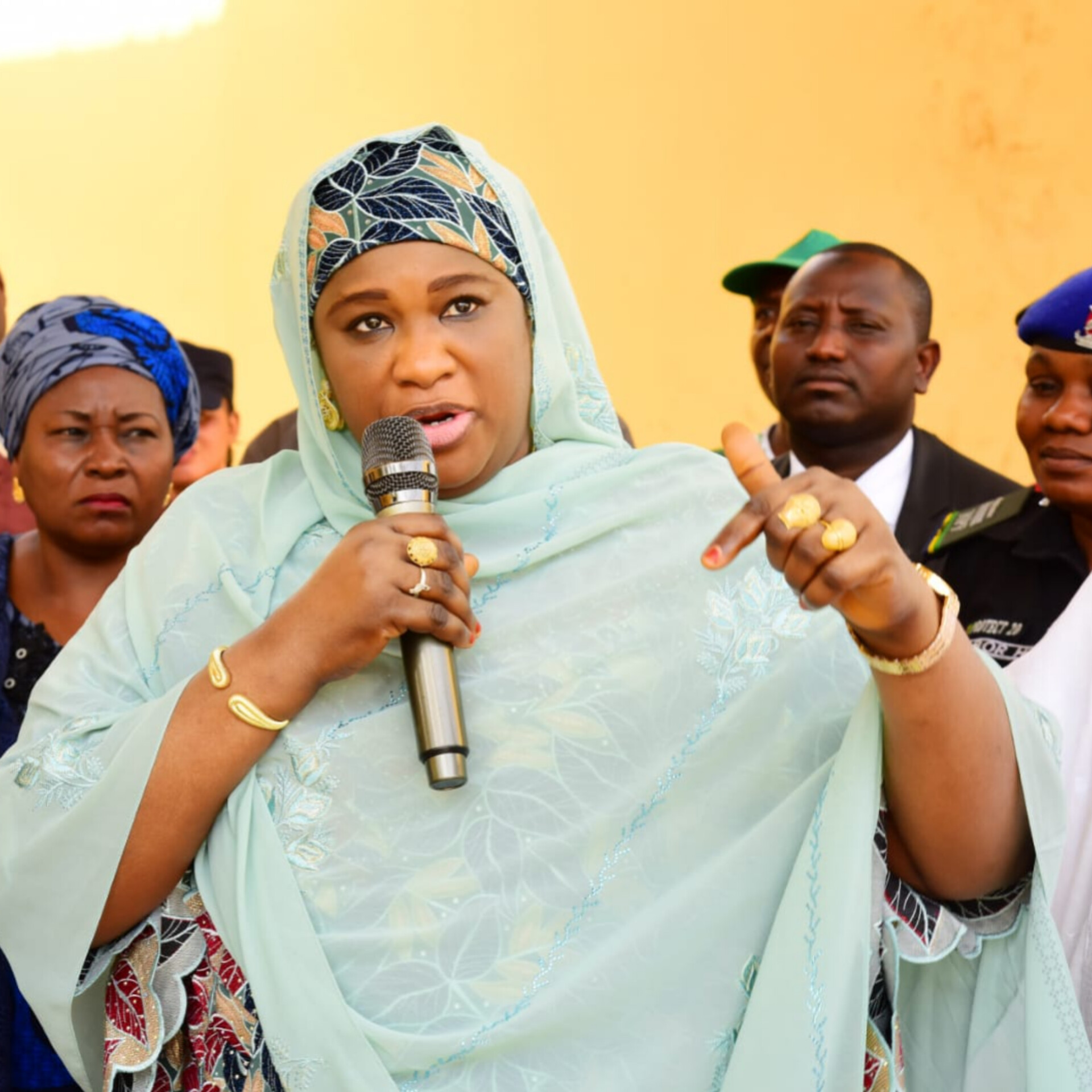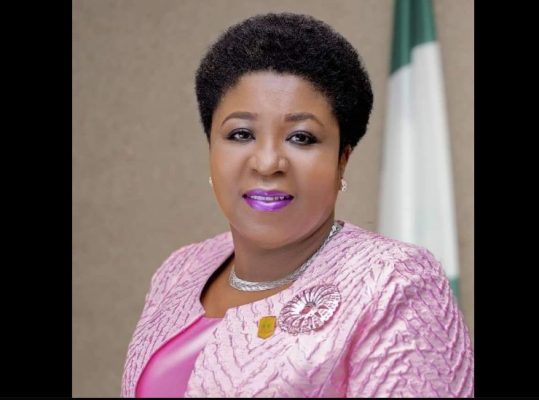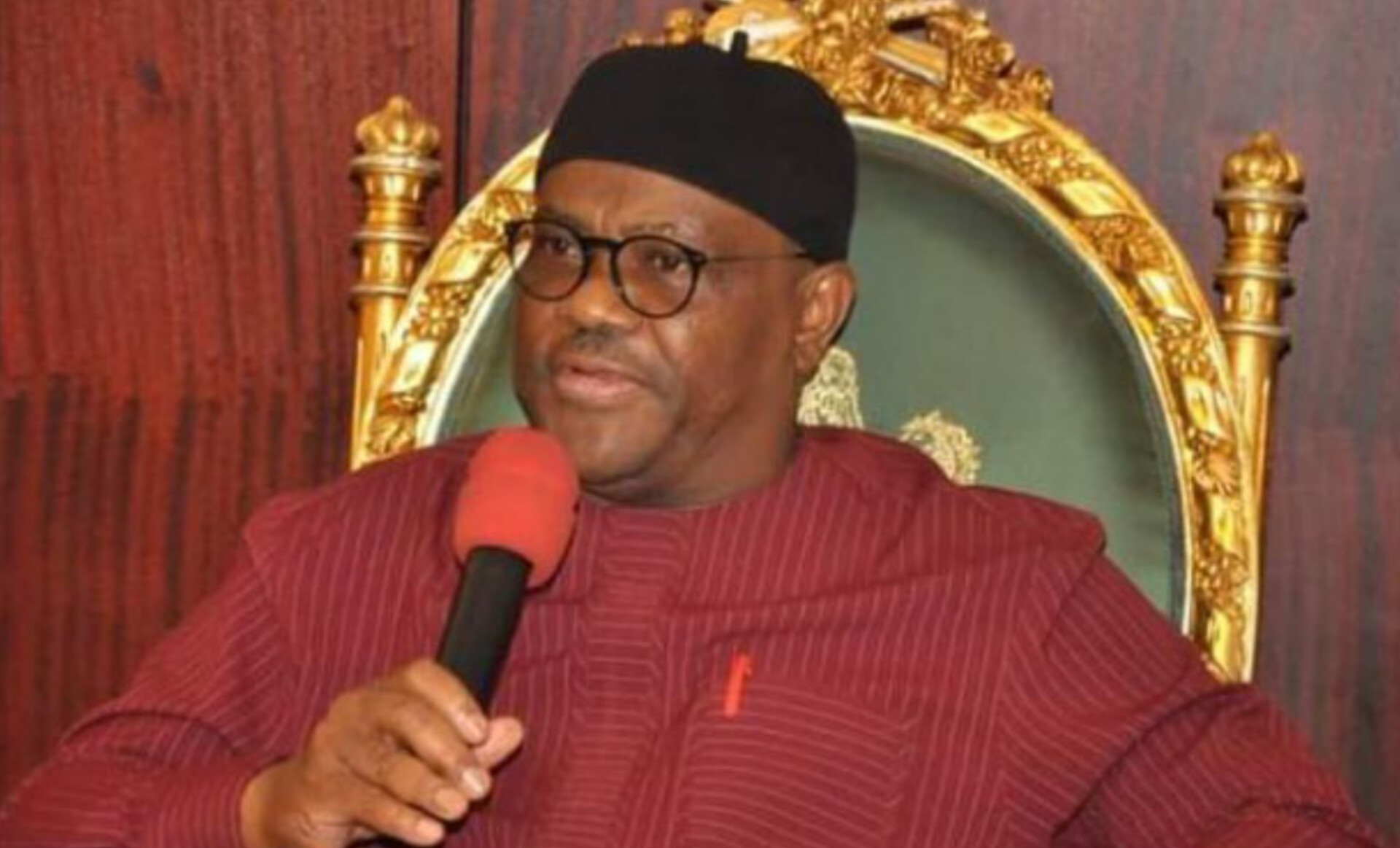The criminal looting of a warehouse in the Gwagwa-Tasha on Sunday by hoodlums can not be associated with hunger, the FCT Minister of State, Dr. Mariya Mahmoud, has indicated

Mahmoud gave the indication at the end of her assessment visit to Gwagwa-Tasha to ascertain the extent of damage of the warehouse.
A statement by the special adviser to the minister on Media Austine Elemue quoted her to have described what she saw to newsmen insisting that it was an unfortunate incident whereby hoodlums carted away all the grains and other food stuffs including the roofs and fence.

The Minister, who expressed disappointment over the attitude of the youths within the area, however assured that the Administration would established a police post in all government warehouses across the territory going forward.
In her words; “we are here due to the unfortunate incident that happened early hours of Sunday, where hoodlums attacked this very warehouse and packed everything that is here, including the fence.
“Not only the food items that are here, including the roofings, windows, and even the gates of this place and offices were all attacked.
“You can see the level of damage. There is nothing that is left here, including machineries that are used for the processing of these things.
“As you have heard, people around, the youth of the environment or the community are suspected to have instigated this incident. So, this is a very sad event. And we are not happy about it”.
The Minister disclosed that the unfortunate incident occurred when the Administration was restocking its warehouse with a view to meeting up with the directive of Mr. President to distribute palliatives to all the six area councils in FCT, just as she vowed that the Administration would prosecute those behind the ugly incident.
According to her; “We did distribution about twice, and then we were about to do the third one, when the trucks were to offload the food items, and then came the attack, as some persons on dyty were injured.

“This is really a bad situation. And it is not something that the Administration will take lightly. All those that are involved must be brought to book. We have to do something.
“And also, this is a sign that we need to reinforce the security situation around all our warehouses, because you just have to keep food.
“But the way this thing happened actually is beyond hunger. This is a criminal act. Somebody that is hungry cannot move out to remove all the roofings that are here. All the doors, all the windows, and also the gates.
“This is not showing that we are good ambassadors of the nation. So definitely we are going to take action about this event that has happened”.
Mahmoud, however, stressed that the incident may slow down the distribution of palliatives in the territory, saying “we have to reconstruct, not even renovate this warehouse, all the offices, and then the gates that are damaged”.




